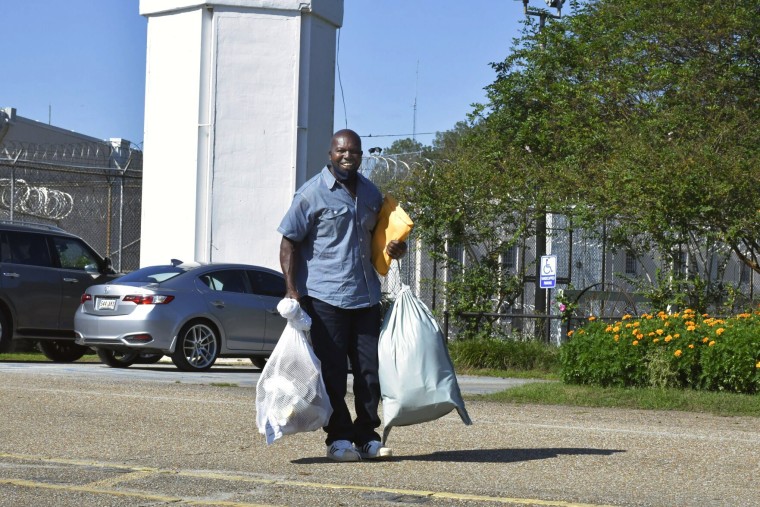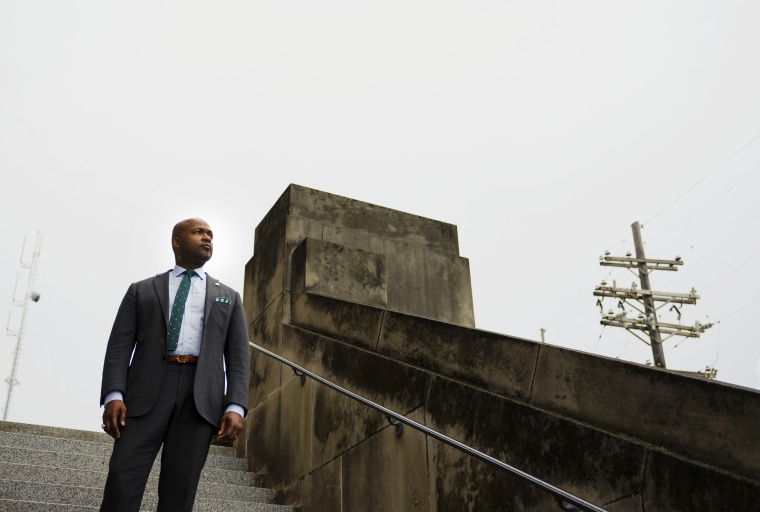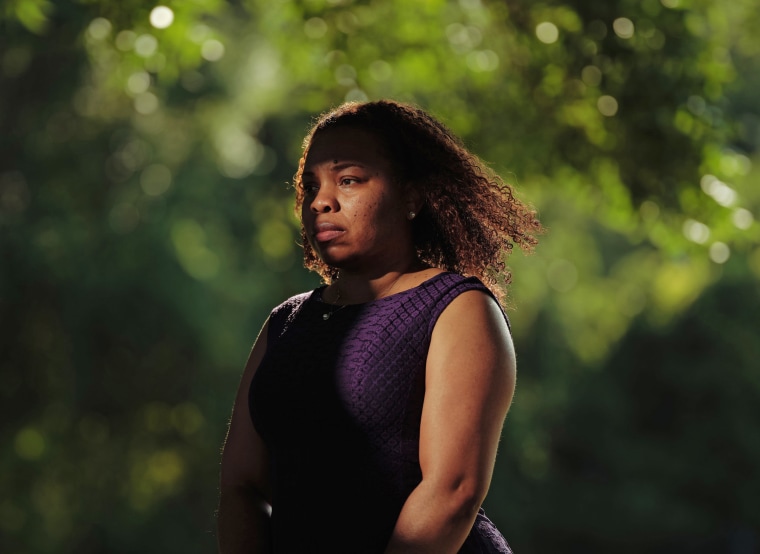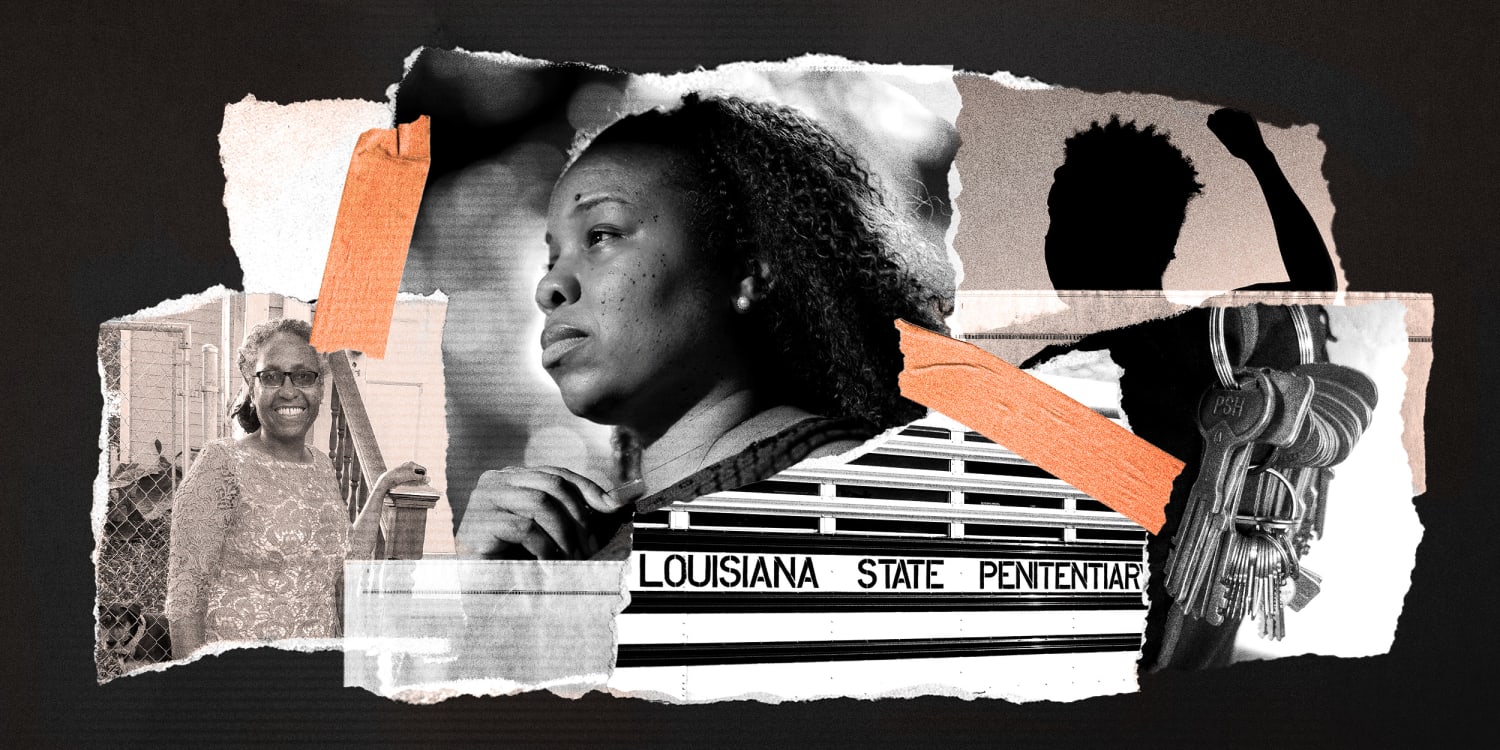Williams’ campaign drew on the energy of the post-George Floyd moment, promising to reimagine a “dual-purpose” system that he said had long offered justice for the wealthy and connected, but meted out punishment to Black and poor people. Like other progressive D.A. candidates before him, he appealed to a kind of economy of justice: that spending less time on minor crimes, and on things that shouldn’t be crimes, would give prosecutors more time and resources to tackle violent crime.
Williams, 49, was born in New Orleans and was a student at the city’s Tulane University in the early 1990s, when the city had one of the highest conviction rates and violent crime rates in the nation. “What they call ‘tough on crime’ — making sure you give the maximum amount of time, to the maximum amount of people, mass-producing convictions — that didn’t make us safer,” he said.
Reflecting on his first 17 months in office, Williams made sure to mention a slew of recent convictions in nearly the same breath as his efforts toward reform. He recognizes that violent crime is up, and that his office is responsible for addressing it. But he said he rejects “the idea that because there are more carjackings, we should ignore the Constitution, that we should disregard evidence and allow innocent people to get arrested and convicted.”
The centerpiece of Williams’ reform agenda has been a civil rights division that is responsible for freeing roughly two people a week from prison since he took office. The unit’s mandate was broad: to re-examine possible innocence cases, excessive sentences, and people who were stuck in prison due to unfair prosecutorial conduct.
Some of those people include “10-6ers” like Louis Mitchell.
In 1967, at age 19, Mitchell was arrested for rape, an accusation he denies. Rape was a capital offense then, and a Black man accused of raping a white woman had virtually no chance of acquittal in a jury trial. Even though the alleged victim could not pick him out of a lineup, Mitchell was facing likely death if convicted, so he pleaded guilty and accepted two life sentences. At that time, lifers were routinely granted parole after 10 years and six months — thus the “10-6ers” moniker.
But in the 1970s, state lawmakers delayed the window for parole eligibility, first to 20 years, then 40, before closing the window altogether.
Mitchell had served 55 years of hard labor at the Louisiana State Penitentiary at Angola when Williams filed a joint motion last October for Mitchell to plead to time served, paving the way for his release. Williams’ office argued Mitchell had been unfairly denied a chance at parole. The Louisiana Parole Project, which represented Mitchell, said that’s something Williams’ predecessor would have never done. “The former D.A. was not interested in reviewing past sentences,” said the organization’s executive director, Andrew Hundley.
Mitchell’s hearing was before Campbell, one of the two progressive judges elected in 2020. He said of standing in her court that day: “It was like someone finally saw me. She finally saw the person I am, not the color of my skin.”

Williams hasn’t received much criticism for authorizing releases like these. Instead, critics have pointed to the fact that under the new D.A., more people arrested for violent crimes are pleading to misdemeanors or having their cases dropped when compared to the prior administration. The Metropolitan Crime Commission, a nonprofit that publishes weekly city crime data and has been critical of Williams, found that in 2021, 74% of violent felony cases were resolved this way. It was 41% of cases in 2019 under the prior D.A.
“That means that the violent offenders that had been arrested by the police department go right back out on the streets,” said the commission’s president, Rafael Goyeneche — a former prosecutor himself. “People just walked out,” he continued, “and that translates into the crime surge that we’re seeing right now.”
A spokesman for Williams said this week they had not seen the figures from the crime commission.
Williams has pointed to court closures due to Covid-19 and Hurricane Ida as factors that cut against his administration’s ability to resolve cases. But he also said his office is screening cases in more stringent ways than his predecessor, Leon Cannizzaro. Williams said the old attitude was: “We don’t care if it’s good or bad, or if they got the right person or if they follow the Constitution. We will accept it anyway.” Cannizzaro’s office used fake subpoenas to coerce witnesses into appearing, and in some cases, sought the jailing of crime victims to get their testimony. Cannizzaro, who now works for the Louisiana Attorney General’s office, did not respond to a request for comment.
Williams has changed some of his office’s practices in response to the criticism. He has used sentencing enhancements in some cases involving guns, triggering longer prison terms, a practice Williams criticized during his campaign. He has also charged minors as adults in certain violent crimes, something he’d promised not to do.

That infuriated progressive groups like VOTE. But Reilly, one of the group’s leaders, said it was also important to put Williams’ tenure in context. “It’s a million times better than anything we’ve seen in this city, to be clear,” he said.
Reilly also said he doesn’t see the current political and public opinion backlash stopping the momentum for change. “For those of us who have been doing this work in the ’90s and 2000s, This is nothing,” Reilly said. “Look how far we’ve come. You can’t unring the bell.”
‘Is there a way to make the system better?’
One indication that voters have not changed course was the election of Susan Hutson as Orleans Parish sheriff in December 2021, well into the surge in violent crime. A former independent monitor for the police department, Hutson won on a reformist platform, promising to overhaul conditions at the Orleans Justice Center — one of the deadliest and most notorious city lockups in the country. She also replaced a more “tough-on-crime” politician, former Sheriff Marlin Gusman, who was the subject of a federal court-ordered monitor after a judge found that the jail’s conditions violated people’s rights.
She said that “priority No. 1” is preventing deaths at the jail. On June 13, after two people died in the jail in separate incidents — a fight and an unrelated medical emergency — Hutson took the unprecedented step of temporarily pulling all of her staff from the city courthouse and reassigning them to the jail, which she said has been chronically understaffed. The move briefly forced the entire courthouse to go virtual.
Hutson likes to answer questions with a series of new ones. Asked about plans the City Council made to use more surveillance technology in arrests, she wondered aloud: “What are you going to do with them? We’re just going to fill up that jail? Then what? When we have it overflow, then what?”
The new sheriff, who has also faced “soft on crime” criticisms, brushed them aside. “Crime has gone up and down while the sheriff has done whatever he wanted to do in this place,” Hutson said. “It ebbs and flows.”
She anticipates that reform-minded officials will be attacked regardless of the crime rate, and said she plans to follow through on her vision for the office, regardless of the political pressure. Hutson is confident that in four years, when she’s up for re-election, she’ll have results that will resonate with city residents.

Meanwhile, Muse, Pollock’s goddaughter, is left with her grief and a great deal of political uncertainty. Her core convictions on systemic racism haven’t changed, but she looks differently now at candidates running for positions in the criminal legal system. A lifelong Democrat, she said she could even consider voting for a candidate from another party — though it’s uncomfortable for her to admit.
A marriage counselor by trade, Muse is used to weighing tension. She wonders aloud: “Is there a way to make the system better and not treat people as harsh, but also hold people accountable?”
CORRECTION (July 6, 2022, 1:36 p.m. ET): A previous version of this article incorrectly identified the organization that produced a 2015 report on exonerations. It was the National Registry of Exonerations, not the Innocence Project.
Source: | This article originally belongs to Nbcnews.com









